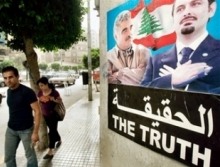 By: Ahmed Al-Jarallah
By: Ahmed Al-Jarallah
THERE is no need to further expatiate on the pressure tactics practiced by Iran in the region. The announcement of the Iranian Revolutionary Guard’s spiritual leader Ali Sa’eedi, the statement of Ali Akbar Welayati, who was an advisor to former president Khameini, as well as the campaign against the International Tribunal for Lebanon spearheaded by Secretary-General of Hezbollah Hassan Nasrallah are scenarios that affirm the role of Iran in triggering crises in the region. In addition to the three aforementioned scenarios, Iran gave statements indicating that any next attack on Lebanon or Gaza would not be limited to that territory, because it would engulf the entire region. The picture being depicted by Iran, which is already drowned in a sea of international sanctions, is a tactic to escape the United Nations’ decisions on the region.
Whatever the case, it appears that regional tools remain most effective in case of any faceoff between Iran and the international community, because Iran of the year 2010 will not dare drink from the sour glass of 1988 again. She is also not ready to open her doors to the winds of internal change for which the opposition is consistently clamoring. The opposition wants to rescue the country from the grip of useless stubbornness, it wants the building of institutions that will serve the future of Iranians who are already fed up of living in servitude of the rulers who have been constantly amassing wealth while citizens wallow in abject poverty.
Iran’s announcement that Lebanon, Iraq and Palestine will be at the forefront in defending her during any possible attack is not a mere international political statement, but a clear indication that Iran was not into charity activities when it was supporting some groups. It also shows that the resistance is not solely religious, but a method of using money might, military support and political coverage for some groups to serve her strategic interests. This implies that the groups are working for an employer who is fully aware of when and how to use her tools.
The speech delivered by Ali Sa’eedi was embedded with serious dangers, because it was an indirect threat to Arab efforts to take a uniform position and speak with one voice at this sensitive stage of the world history. The whole world is currently redrawing the map of international interest for the next century. This is especially significant, because the Arab world is serious about escaping incessant tensions that have been enveloping the world for the past six decades and which have been deterring development and increasing backwardness. There is an urgent need to strike out the idea of ‘regional policing’ towards which Iran is working. Iran has been taking steps that she realizes are adventurous and have negative implications.
Iran is also oblivious of the fact that Arabs are no longer interested in useless adventures that previously destroyed their strength and wealth, especially when they realized that their united stand will enable them to attain strong position within the international community. They have paid a heavy price to achieve this objective and they will not compromise this position under any circumstances. Iran has lost every aspect of genuineness, no matter the basis for activating her tools, because she does not have any other convincing proof and justification. She has repeatedly announced that she will give up its nuclear enrichment project if an alternative is available, but experience has proven otherwise, especially after she used her tools in Lebanon to spit a fire of crisis in that small country through the International Tribunal.
The natural question at this point is: Why did Hezbollah, that enjoys strong security power in Lebanon, refuse to cooperate with the International Tribunal from the beginning? The group should have presented evidence about which Nasrallah spoke in his recent speech if it really wanted stability in Lebanon. This could have been the best opportunity for the group to prove that it does not serve as a tool for Iran to propagate her agenda without any consideration for Lebanon and citizens. Nasrallah has clearly indicated that the group executes Iranian agendas to the letter, so it always strives hard to serve the interests of its Persian master as much as it can. The campaign against the International Tribunal was an attempt to stay away from suspicion, but it implicated the group further. Nasrallah cannot go beyond actions of his masters in Tehran as he and his group are mere pawns in the hands of their masters.
Aren’t these latest incidents giving out the putrefied odor of what Iran is planning to achieve through its tools without directly risking her reputation?
Note about 1988:
September 1st is recognized by Amnesty International as the ‘International Day in Remembrance of the Massacre of Political Prisoners’ in light of the massacre of political prisoners in Iran in 1988. In the span of several months, thousands of political prisoners in what is now known as ‘The 1988 Iran massacre’ were brutally murdered.
On July 16th 1988, Khomeini had reluctantly accepted a ceasefire in the war with Iraq, describing it as ‘drinking the challis of poison.’ Without the pretext of war to hide behind, and with his health declining fast, Khomeini became more determined to crush the resistance and eliminate every defiant political prisoner.

Leave a Reply
You must be logged in to post a comment.